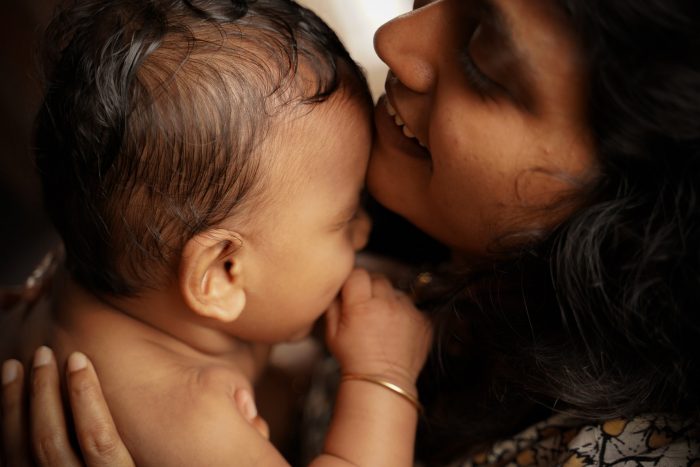Parenting is like climbing a mountain—bumpy, challenging, and mostly uphill.
Like a mountain, you can’t predict the terrain and the top of the mountain or your final destination is nowhere in sight.
Parenting is a mysterious task, yet most of us dare to try. We enter into it full of optimism, but oblivious to the obstacles ahead of us.
There is no one right way to parent and there are mounds of competing evidence as to what the best approach is. Diving into the literature on best practice, as it relates to parenting, can be an overwhelming adventure. So, many parents learn by trial and error, not knowing whether or not they have done a “good job” until the end of the journey.
So, what does it take to be the metaphorical “good parent?”
When it comes to “ good” parenting, the question is: do we parent the way we were parented? Or, if that didn’t pan out well, do we do the exact opposite of what our parents did?
The reality is, we learn from experience.
What defines a “good” parent? Is it the stay-at-home parent who dotes on their children? Is it the working parent who models life in the workforce and responsibilities outside the home? Is it the parent who disengages with their child, forcing them to dive headfirst into independence?
Do strict parents prevail? Or, do they create sneaky kids? Does the relational parent rise to the top, or are they too much of a friend to their child? What about helicopter parents? Are their kids safer, better adjusted, and more loved? And then there is the absent parent; does their child grow up to be more resilient?
Here is what I know: raising kids is hard! We must expect the unexpected and plan accordingly.
No two kids are the same, even when they are our own two kids. Even multiple kids, raised under the same roof with one set of parents and common rules and expectations, react differently to how they are parented. So, as a parent, how do you get it right? What is the recipe for raising a great kid?
Let’s examine possible outcomes…
If your child is athletic and on the honor role, does that qualify as “good” parenting? If your child is happy and socially/emotionally well-adjusted, do you get to be the elusive “good” parent? If your child responds to your every request and does as they are told, have you succeeded?
What if you child got a full scholarship, a great job, married rich, or gives you cute grandchildren—is that the badge of honor? What if you raised the nice kid, the responsible kid, or the kid who volunteers? At what point is it your turn to celebrate your achievement as a parent? Who gets bragging rights?
Let’s consider the possible mishaps…
If your child experiments with drugs, quits school, moves out, or never moves out, drinks too much, or has a potty mouth, are you a bad parent? What defines failure as a parent? Are you a failure if your child has no friends, struggles with mental health, or is fighting disease? If your child fails to come home on time, crashes the car, or has a teen pregnancy, have you failed? Is school refusal, excessive screen time, or rude behaviour the signs of parenting gone wrong?
Regardless of your answer, my guess is your child will have both positive and negative qualities, and will possess both desirable and undesirable behaviour. Together, you will experience proverbial successes and failures.
So, how do you know how you are doing as a parent? How do you know if what you are experiencing is a phase, a fluke, or the result of good or bad parenting?
There are no performance reviews, no report cards, and no year-end audits. It is tough to get fired or even laid off. Whether things are good or bad, you have invested in an 18 to 20-year commitment—emotionally and financially. Your child is likely one of your biggest investments. No one wants to commit 20 years into a crappy investment, so how do you ensure you are getting it right?
After 20 years as an Elementary Educator, 12 years as a school administrator, and 15 years of parenting, here is what I have deduced.
Relationships are key. Relationships are the foundation of successful parenting. Your child needs to be confident and self-assured to be “well-adjusted.” They need you to build up their self-esteem and to always be in their corner no matter what! Your child needs you to be their coach, not their drill sergeant! You must be consistently their soft place to fall.
Trust. If you want your child to be open and honest with you so they will be forthcoming when they screw up (and they will screw up), your behaviour and response must be predictable. Your child must believe you will help them conquer the “tough stuff” rather than fear being penalized for poor choices. If they trust you, they will learn from the natural consequence of their mistake, and if they have a strong relationship with you, they will accept how you respond and the limitations you employ.
As parents, we must mentally prepare for our kids to mess up and know how we will respond before it even happens. Screwups, experimenting, and curiosity are how our kids learn. It is our job to help them mess up safely and fail forward.
Would you rather:
1. Your child be honest about their mistakes when they happen, or lie and hide them from you?
2. Your child comes home after a screwup, or you need to send out a search party for them because they were afraid to come home?
3. Have your child be the same person with you as they are with their friends, or put on a front on for you to meet your expectations?
Kids need powerful role models, positive reinforcement, trust, and strong relationships. If they don’t get it from you, the parent, they will find somewhere else to get it.
If you want a great kid, then you need them to consistently return to you, for the positive coaching that is essential for their upward growth. Athletes, employees, and congregations, all return to their leader for guidance and coaching. Be a leader!
As a parent, you are a leader, a coach, and an influencer. Kill your child with kindness. Build them up, and catch them when they fall. Expect the unexpected, and plan accordingly.
You, too, were once a child. What would have benefitted you? Who did you trust? Where were your strongest relationships?
Your child needs you to be a powerful role model. Be your best self and inspire your child to be theirs.
Good humans produce good humans.
~











Read 10 comments and reply